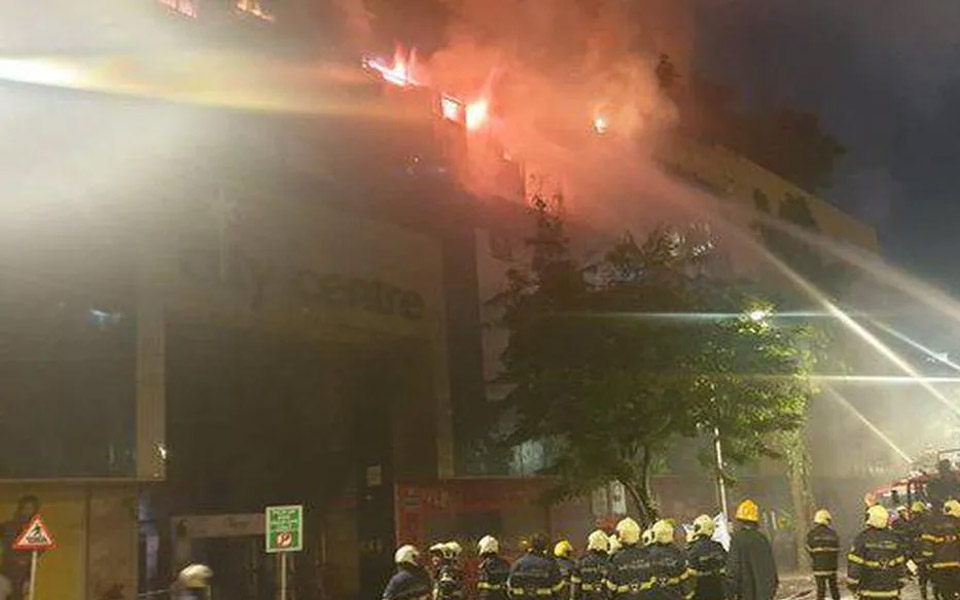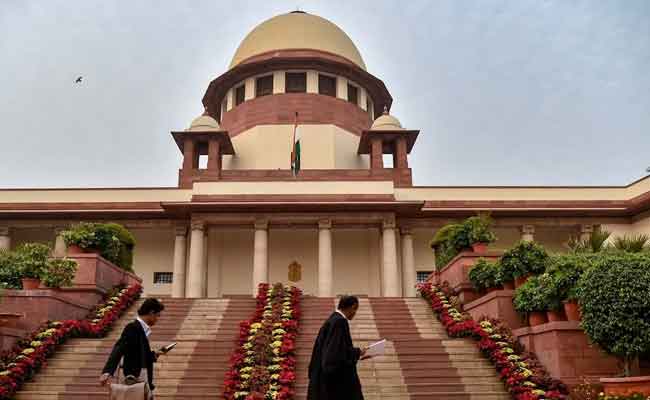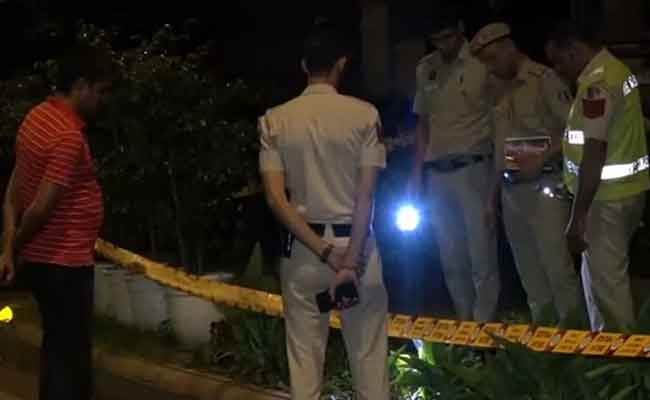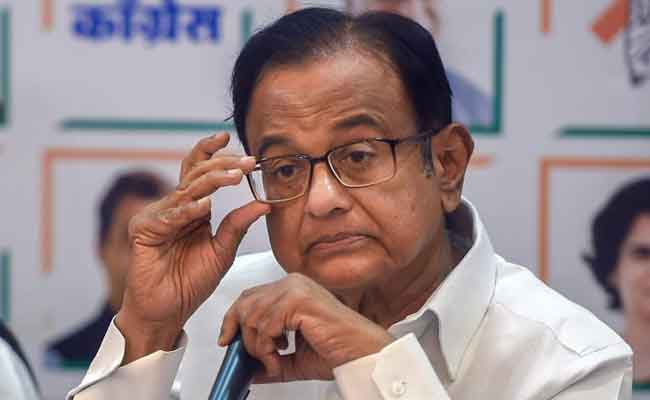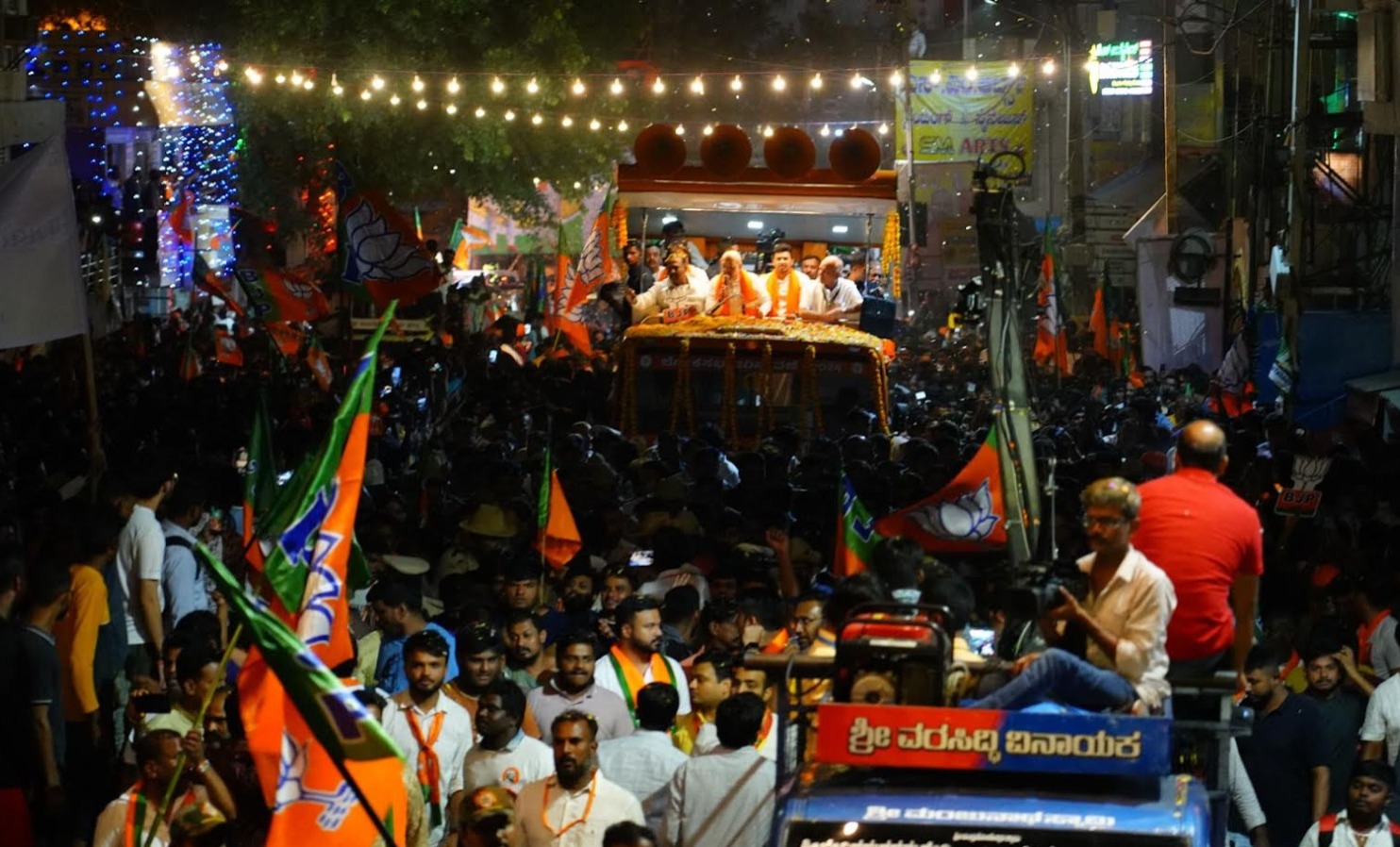Mumbai: Mumbai fire brigade personnel are engaged in controlling the blaze at a mall 12 hours after fire broke out there, even as around 3500 people from an adjoining building were evacuated, civic sources said on Friday.
A major fire erupted at the City Center Mall in Mumbai Central area at 8.50 pm on Thursday. Two fire personnel have been injured while controlling the blaze, the sources said.
Around 300 people were rescued from the basement plus three-storey mall after the fire broke out, an official said.
A Brihanmumbai Municipal Corporation (BMC) release said the Mumbai Fire Brigade has given a 'brigade call' in which fire engines are called from all agencies in the city.
Around 50 fire fighting vehicles, including24 fire engines and 16 jumbo tankers are engaged in the fire fighting at the spot, besides over 250 officers and firemen, it said.
A fireman sustained minor injuries on his right hand during the firefighting operation and was rushed to nearby JJ Hospital, it said, adding his condition is stable.
The fire erupted in a mobile shop on the second floor of the mall, which mainly houses shops for mobile accessories, besides a few other stores.
The BMC said around 3500 residents of the 55-floor Orchid Enclave tower adjoining the mall were shifted as a precautionary measure.
A police officer said they evacuated around 300 people from the mall when the blaze erupted.
The fire was initially categorised as level 1 (minor) but was upgraded to level-3 at 10.45 pmand to level-4 at 2.30 am, after flames spread to other parts of the building.
Mumbai Mayor Kishori Pednekar visited the site and reviewed the firefighting operation.
According to fire brigade officials, the exact cause of the fire was not yet known.
Earlier on Thursday, a fire broke out in a garment factory at Kurla in Mumbai. It was doused after two hours.
Let the Truth be known. If you read VB and like VB, please be a VB Supporter and Help us deliver the Truth to one and all.
New Delhi (PTI): The Supreme Court on Wednesday said the Constitution intended to bring about a "sense of social transformation" and it would be "dangerous" to say that the private property of an individual cannot be regarded as material resources of community and taken over by state authorities to subserve "common good".
The observations were made by a nine-judge bench headed by Chief Justice D Y Chandrachud, examining whether privately-owned resources can be considered "material resources of the community", when the counsel for parties including the Property Owners Association (POA) of Mumbai made vehement submissions that the private properties cannot be taken over by state authorities under the garb of constitutional schemes of Articles 39 (b) and 31 C of the Constitution.
The bench is considering the vexed legal question arising from the petitions whether private properties can be considered "material resources of the community" under Article 39 (b) of the Constitution, which is part of the Directive Principles of State Policy (DPSP).
"It may be a little extreme to suggest that 'material resources of the community' only means public resources and we do not have their origin in the private property of an individual. I will tell you why it would be dangerous to take that view.
"Take simple things like mines and even private forests. For instance, for us to say that the governmental policy will not apply to the private forests under Article 39 (b)... therefore keep the hands off. It will be extremely dangerous as a proposition," said the bench which also comprised justices Hrishikesh Roy, B V Nagarathna, Sudhanshu Dhulia, J B Pardiwala, Manoj Misra, Rajesh Bindal, Satish Chandra Sharma and Augustine George Masih.
Referring to social and other prevalent situations in the 1950s when the Constitution was made, the bench said, "The Constitution was intended to bring about social transformation and we cannot say that Article 39 (b) has no application once the property is privately held."
It said whether the Maharashtra law, empowering authorities to take over dilapidated buildings, was valid or not was a completely different issue and would be decided independently.
The bench asked can it be said Article 39 (b) will have no application once properties are privately held ones because the society demands welfare measures and there was a need for redistribution of wealth as well.
The CJI referred to the abolition of 'Zamindari' and the purely capitalist concept of property also and said it attributed a sense of "exclusiveness" to property.
"The socialist concept of property is the mirror image which attributes to property, a notion of commonality. Nothing is exclusive to the individual. All property is common to the community. That's the extreme socialist view," the CJI said, adding that the DPSPs have their foundation in the Gandhian ethos.
"And what is that ethos? Our ethos regards property as something which we hold in trust. We don't go as far as to adopt the socialistic model that there is no private property...
"But, you know, our concept of property has undergone a very different, very subtle change from either the extreme capitalist perspective or the extreme socialist perspective," Justice Chandrachud said.
He said we regard property as something of holding in trust.
"We hold the property because for the succeeding generations in the family, but broadly, we also hold that property in trust for the wider community. That's the whole concept of sustainable development.
"That property which we have today, as today's generation, we hold in trust for the future of our society. That's what you call an inter-generational equity," the bench said.
It also observed that there was no need to distribute private properties, which have been considered as material resources of the community and gave the instance of nationalisation of private assets.
"You must understand that Article 39 (b) has been crafted in a certain way in the Constitution because the Constitution was intended to bring about a social transformation. We shouldn't therefore go that far to say that the moment private property is private property, the Article 39 (b) will have no application," the CJI said.
The bench also said it will also deal with the issue pertaining to Article 31 C which grants immunity to laws meant to protect DPSP. The observation was opposed by Solicitor General Tushar Mehta saying that it was not referred to.
Mehta said though the issue of Article 31 C was not referred to the nine-judge bench, but, he will assist it.
The arguments remained inconclusive and would resume on Thursday.
Article 39 (b) makes it obligatory for the State to create policy towards securing "that the ownership and control of the material resources of the community are so distributed as best to subserve the common good".
As many as 16 petitions including the lead petition filed by the Mumbai-based POA was heard by the bench. The lead plea was filed by POA way back in 1992 and it was referred thrice to larger benches of five and seven judges before being referred to a nine-judge bench on February 20, 2002.

